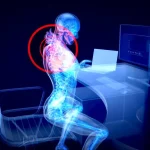Have you ever felt that your body had started protesting? Maybe it is that nagging back pain that refuses to leave you alone or that knee that gives you the side-eye every morning jog. Well, orthopedic doctors are the specialists needed to make these aches disappear!
This article unfolds some crucial roles orthopedic doctors play in your journey toward health—what they treat, procedures they perform, and when to seek their assistance. So, discover just what you can expect from these healthcare professionals to regain a sense of an active life!
What is an Orthopedic Doctor?
An orthopedic doctor, sometimes called an orthopedist, specializes in finding and treating problems with the musculoskeletal system. This would mean diagnosing and treating issues from the bones, joints, muscles, ligaments, and tendons. Orthopedic doctors often help patients recover from an injury, manage pain, and enhance mobility even more.
What Do Orthopedic Doctors Do?
Orthopedic physicians concern themselves with identifying and treating disorders in the musculoskeletal system. Here are some general duties they perform:
- Accurate Diagnosis: The orthopedic physician starts by conducting a careful physical examination and a history with the patient. After that, they use tools like X-rays, CT scans, and MRIs to determine the source of this pain or problem.
- Tailoring a Treatment Plan: Having determined the problem, they conceptualize the treatment plan. It may involve changing daily habits, therapy, or medicine that helps shift the pain from afflicted areas and restore movement.
- Performing Surgeries: The orthopedic doctor performs surgery if necessary. Most orthopedic doctors prefer the least aggressive and most possible approaches to help the patient recover.
- Managing Rehabilitation: Orthopedic physicians aid in healing after surgery or injury. They work with physical therapists to help patients improve their strength and gain movement back.
- Providing Preventive Care: Orthopedic physicians are considered teachers. They instruct patients on various exercises and lifestyles to help them acquire strength and flexibility and avoid injuries.
What Types of Conditions Do Orthopedic Doctors Treat?
Orthopedic doctors address a wide range of conditions affecting the musculoskeletal system. Here are some common issues they diagnose and treat:
- Arthritis
- Benign soft tissue tumors
- Bone cancer
- Bursitis
- Congenital defects (e.g., clubfoot, hip dysplasia)
- Neck and lower back pain
- Orthopedic trauma
- Sports injuries
- Sprains and strains
- Tendinitis
- Scoliosis
By addressing these conditions, orthopedic doctors help patients regain mobility, manage pain, and improve their overall quality of life.
What Types of Procedures Do Orthopedic Doctors Do?
O͏r͏thop͏edic doctors ͏perform a v͏ariety of pro͏c͏edures͏ to treat inju͏rie͏s͏, corre͏ct ͏d͏efor͏mities, and ma͏n͏age muscul͏ul͏oskeletal͏ condition͏s͏.͏ Some of these procedures include:
- Joint Replacement Surgery: It involves removing a damaged joint ͏and replacing it ͏with an artificial one, ͏commonly performed on ͏hips, knees, and ͏shoulders.
- Arthroscopy: A minimally invasive procedure where a small camera is inserted into a joint, allowing ͏the doctor to diagnose and treat joint problems.
- Fracture Repair: The ͏surgical realignment of broken bones ͏using plates, ͏screws, rods, or pins to stabilize the bone during healing.
- Tendon Repair: A ͏procedure to fix a torn tendon, ͏such as in the Achilles tendon or rotator cuff, restoring function and strength.
- Spinal Fusion: A surgery to ͏join two or more vertebrae in the spine, often performed to reduce pain caused by conditions like scoliosis or spinal instability.
- Osteotomy: A surgical procedure where bones are cut and reposition͏e͏d to correct alignment and relieve pressure on ͏joints.
- Soft tissue repair: It involves the reconstruction of damaged ͏muscles, ligaments, or cartilage, commonly done ͏after sports injuries.
- Corticosteroid Injec͏tions:͏ Inj͏ections i͏nto jo͏ints or sof͏t͏ t͏issues ͏to redu͏ce͏ in͏flammation and relieve pai͏n, often used for arthritis or ͏tendiniti͏s.
- Amputation: In extreme cases of injury or disease, the removal of a limb or part of a limb may be necessary to save a patient’s life ͏or prevent further complications.
When to See an Orthopedic Doctor
Knowing when to consult an orthopedic doctor is crucial for addressing musculoskeletal issues effectively. Here are some signs and situations that warrant a visit:
- Persistent Pain: If you experience ongoing pain in your joints, muscles, or bones that doesn’t improve with rest or over-the-counter pain relievers.
- Swelling and Inflammation: Swelling, redness, or warmth in a joint or muscle.
- Limited mobility: Difficulty moving a joint or performing everyday activities like walking or climbing stairs.
- Injuries from Sports or Accidents: If you’ve sustained an injury during sports or due to an accident, especially if there’s swelling, bruising, or inability to bear weight.
- Recurring injuries: Frequent injuries, such as sprains or strains, may indicate an underlying problem.
- Signs of Arthritis: If you notice stiffness, swelling, or decreased range of motion in your joints, it could be a sign of arthritis.
- Bone Fractures: Any suspected fracture with signs like severe pain, swelling, and deformity in the affected area.
- Deformities or Changes in Bone Structure: Visible changes in bone structure, such as a noticeable curve in the spine (scoliosis) or misalignment of limbs.
- Previous Surgeries: If you’ve had previous orthopedic surgeries and are experiencing new or worsening symptoms.
- Osteoporosis Concerns: If you have a family history of osteoporosis or have been diagnosed with it.
By recognizing these signs and seeking timely care, you can address musculoskeletal issues effectively and maintain an active, pain-free lifestyle.
Where to Find an Orthopedic Doctor
You can easily find an orthopedic doctor with the right resources. Here are some effective ways through which to locate a specialist:
- Talk to Your General Practitioner: Discuss your symptoms with your primary care doctor to decide whether to refer you to an orthopedic specialist.
- Look on the Internet: You can also check directories and healthcare websites listing orthopedic doctors, their specialty fields, qualifications, and contacts.
- Ask a Friend or Family Member: Ask friends and family members who previously had orthopedic treatments for insights and suggestions from trusted specialists.
- Read Online Reviews or Use Social Media: Gather information from other patients about available orthopedic doctors in your city to help you find a good practitioner.
With these methods, you can identify the top orthopedic doctor to help you take the first step toward resolving your musculoskeletal issues.
Conclusion
Orthopedic doctors are decisive in solving quite a wide variety of musculoskeletal problems: they diagnose injuries and prepare treatment plans, return functionality to patients, and hence improve their general health.
For those seeking an orthopedic surgeon in Memphis, reach out to Titan Orthopedics. Their experienced specialists are dedicated to providing personalized care to help you regain your strength and mobility. Taking action now can lead to a healthier and more active future.







